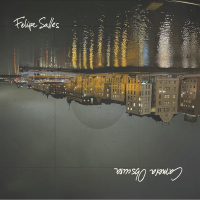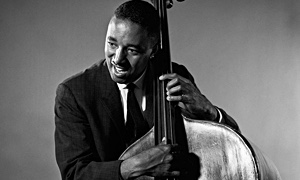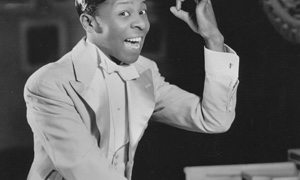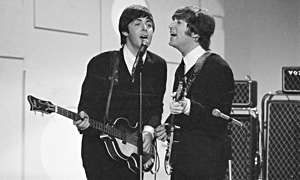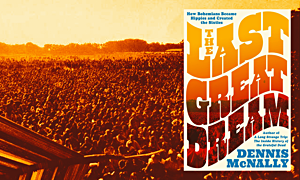Home » Jazz Articles » Book Review » The Master of Drums: Gene Krupa and the Music He Gave The World
The Master of Drums: Gene Krupa and the Music He Gave The World
Krupa was a genius masquerading as an ordinary guy. And that essence, for certain, Elizabeth Rosenthal captures very, very well.
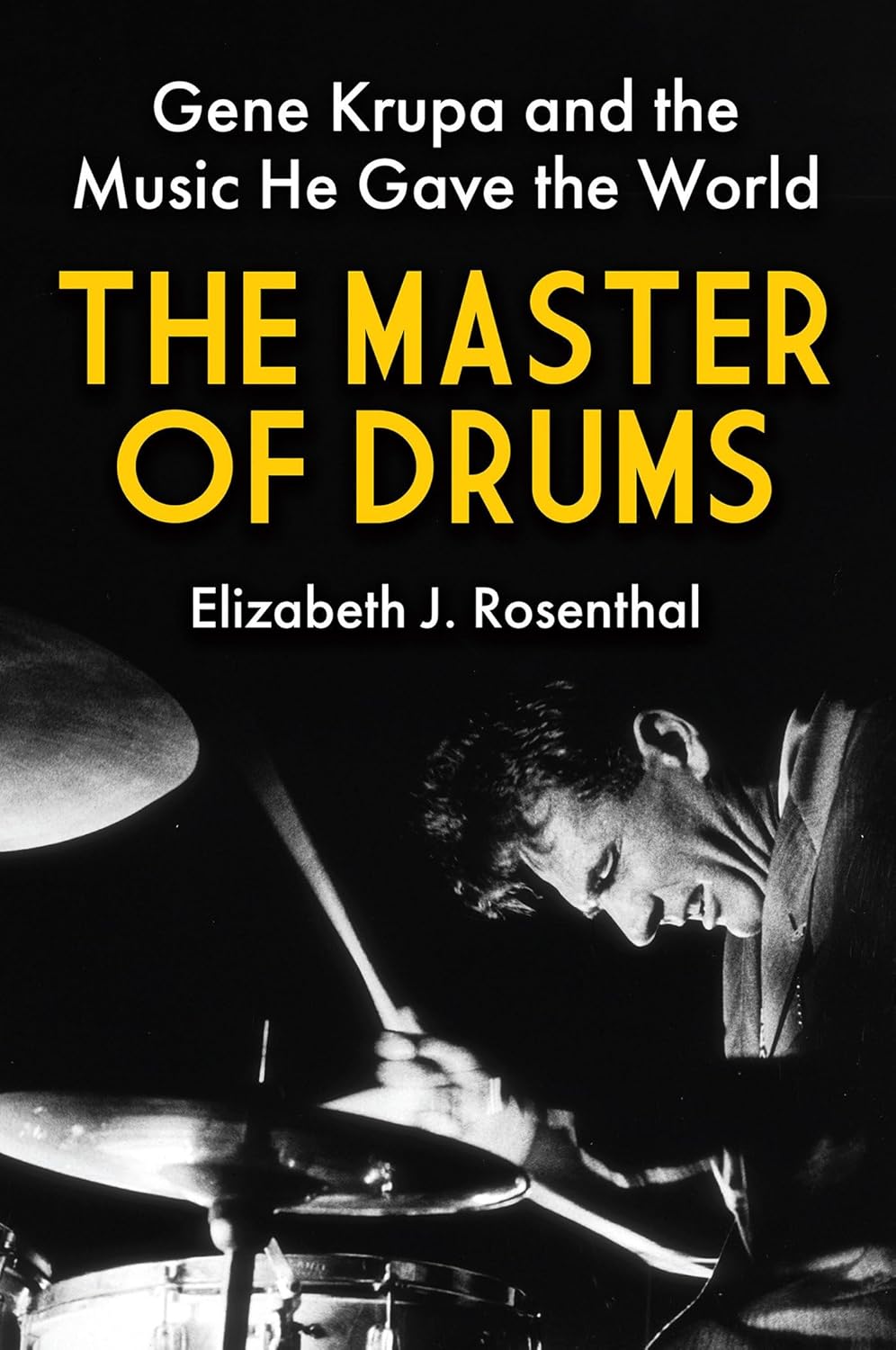 The Master of Drums
The Master of Drums Elizabeth J Rosenthal
320 Pages
ISBN: 978-0-8065-4320
Kensington Publishing Company
2025
In the interests of full disclosure, I spent an extended period with

Gene Krupa
drums1909 - 1973
In Krupa's own estimation—his own words—his major accomplishment was "to make the drummer a high priced-guy." That is, to be fair, not an inaccurate appraisal, but, clearly, one that was all too modest. How, one asks, did this Polish American kid, become not only a matinee idol (good looks certainly helped) but a technically innovative player who, in his own way, shaped the modern concept of jazz drumming—at least in its swing evolution—as

Louis Armstrong
trumpet and vocals1901 - 1971

Benny Goodman
clarinet1909 - 1986
For a guy who did not read music until he was well into his professional life, Krupa also authored a classic method book. He also pioneered using four limb independence, which someone described as "man, when he's going, he's got both hands, both feet, and both cheeks going different ways." Ok. This was a Westinghouse machinist's description of Krupa's technique—not some conservatory-trained percussionist's, but who could do better? Perhaps as much as Goodman lived the clarinet or

John Coltrane
saxophone1926 - 1967

Duke Ellington
piano1899 - 1974
Speaking of Ellington, there is, of course, the very real and fraught question of the importance of black drummers when segregation not only produced a color line, but brutal lynchings. Krupa was not kidding anyone about his relations to black drummers, especially

Chick Webb
drums1905 - 1939

Zutty Singleton
drums1898 - 1975
Rufus "Speedy" Jones
b.1936
Sonny Payne
drums1926 - 1979
Krupa, of course, was not simply a drummer. He was a bandleader; he too made the hazardous transition from swing to bop. Krupa had good bands, very good bands, but perhaps never a great one. He brought on trumpet player

Roy Eldridge
trumpet1911 - 1989

Anita O'Day
vocals1919 - 2006
Shorty Sherock
b.1915
Hampton Hawes
piano1928 - 1977

Charlie Parker
saxophone, alto1920 - 1955
Once he was back on his feet, Krupa had another band—or bands, because one had a string section—but in the late 1940s, Krupa too had a bop band—like

Artie Shaw
clarinet1910 - 2004

Benny Goodman
clarinet1909 - 1986

Kenny Clarke
drums1914 - 1985

Red Rodney
trumpet1927 - 1994
Don Fagerquist
trumpetb.1927

Harry James
trumpet1916 - 1983

Gerry Mulligan
saxophone, baritone1927 - 1996
Charlie Kennedy
saxophone, alto1927 - 2009

Woody Herman
band / ensemble / orchestra1913 - 1987
For many star performers, the downside of their careers often turns into a search for relevance. Krupa seems to have been spared this depressing phase, in no small part because changing musical tastes notwithstanding, many continued to seek him out. He was at least financially secure. He toured extensively with Jazz at the Philharmonic in the early and mid-1950s and then settled in for extended gigs at the Metropole in New York City and sessions at the Steel Pier in Atlantic City. He continued to occasionally perform in clubs in South Jersey that required not much more than a two-hour drive from his home in New York, and some trips further away. But his health had begun to fail him, he had several heart attacks, emphysema, and finally, chronic myeloid leukemia. There was one last heroic reunion with Benny Goodman at Carnegie Hall in 1973. By then, at sixty-four, he was gone. He had probably played himself to death.
This is a biography that is worthy of its subject. Gene Krupa was a remarkable musician and a remarkable man. He had his flaws, obviously, but a lack of sense of what his playing, music and even presence could do for others was not one of them. Krupa was a genius masquerading as an ordinary guy. And that essence, for certain, Elizabeth Rosenthal captures very, very well.
Tags
Book Review
Richard J Salvucci
Publisher
Gene Krupa
Louis Armstrong
Benny Goodman
John Coltrane
duke ellington
Chick Webb}, whom he adored, or {{Zutty Singleton
Rufus Jones
Sonny Payne
Roy Eldridge
Anita O'Day
Shorty Sherock
Hampton Hawes
Charlie Parker
Artie Shaw
Kenny Clarke
Neal Peart
Red Rodney
Don Fagerquist
Gerry Mulligan
Charlie Kennedy
Woody Herman
New York City
Carnegie Hall
Comments
PREVIOUS / NEXT
Support All About Jazz
 All About Jazz has been a pillar of jazz since 1995, championing it as an art form and, more importantly, supporting the musicians who make it. Our enduring commitment has made "AAJ" one of the most culturally important websites of its kind, read by hundreds of thousands of fans, musicians and industry figures every month.
All About Jazz has been a pillar of jazz since 1995, championing it as an art form and, more importantly, supporting the musicians who make it. Our enduring commitment has made "AAJ" one of the most culturally important websites of its kind, read by hundreds of thousands of fans, musicians and industry figures every month.



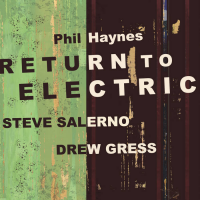



 Buy Now
Buy Now



